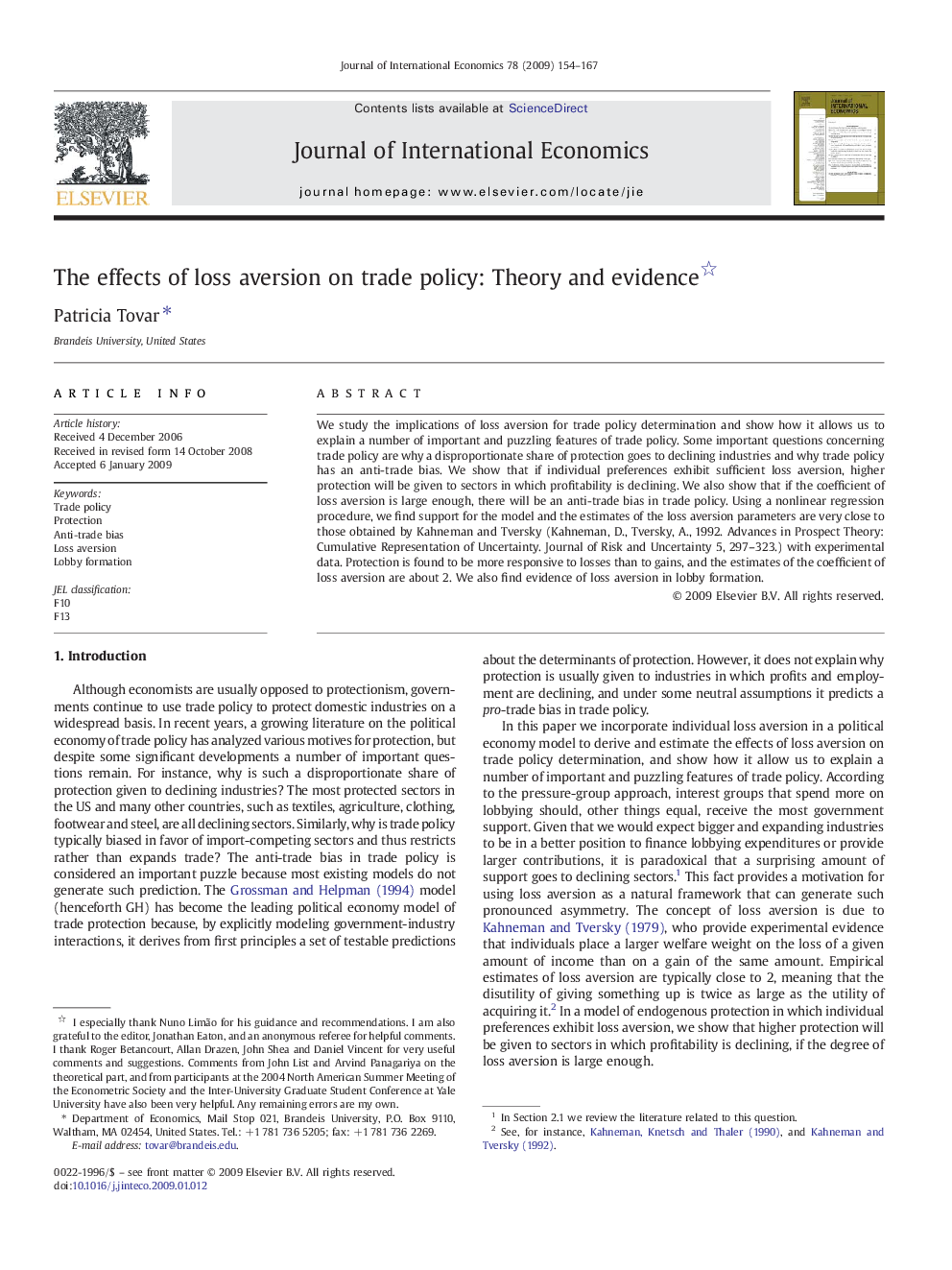| کد مقاله | کد نشریه | سال انتشار | مقاله انگلیسی | نسخه تمام متن |
|---|---|---|---|---|
| 962446 | 930102 | 2009 | 14 صفحه PDF | دانلود رایگان |
عنوان انگلیسی مقاله ISI
The effects of loss aversion on trade policy: Theory and evidence
دانلود مقاله + سفارش ترجمه
دانلود مقاله ISI انگلیسی
رایگان برای ایرانیان
کلمات کلیدی
موضوعات مرتبط
علوم انسانی و اجتماعی
اقتصاد، اقتصادسنجی و امور مالی
اقتصاد و اقتصادسنجی
پیش نمایش صفحه اول مقاله

چکیده انگلیسی
We study the implications of loss aversion for trade policy determination and show how it allows us to explain a number of important and puzzling features of trade policy. Some important questions concerning trade policy are why a disproportionate share of protection goes to declining industries and why trade policy has an anti-trade bias. We show that if individual preferences exhibit sufficient loss aversion, higher protection will be given to sectors in which profitability is declining. We also show that if the coefficient of loss aversion is large enough, there will be an anti-trade bias in trade policy. Using a nonlinear regression procedure, we find support for the model and the estimates of the loss aversion parameters are very close to those obtained by Kahneman and Tversky (Kahneman, D., Tversky, A., 1992. Advances in Prospect Theory: Cumulative Representation of Uncertainty. Journal of Risk and Uncertainty 5, 297-323.) with experimental data. Protection is found to be more responsive to losses than to gains, and the estimates of the coefficient of loss aversion are about 2. We also find evidence of loss aversion in lobby formation.
ناشر
Database: Elsevier - ScienceDirect (ساینس دایرکت)
Journal: Journal of International Economics - Volume 78, Issue 1, June 2009, Pages 154-167
Journal: Journal of International Economics - Volume 78, Issue 1, June 2009, Pages 154-167
نویسندگان
Patricia Tovar,